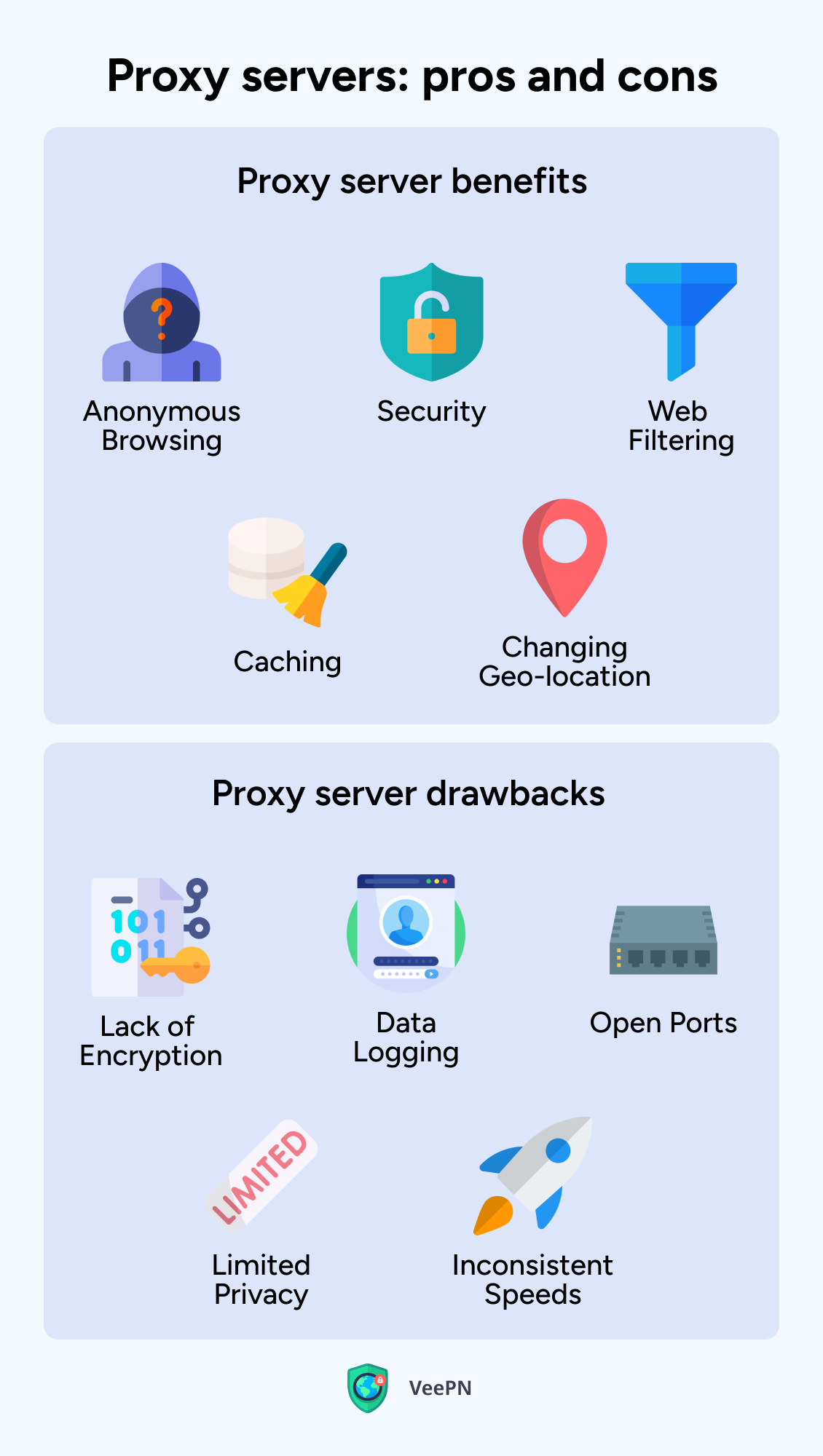During the current digital age, online security is vital than ever. As we spend amount of time on the internet, safeguarding our personal information and maintaining our online privacy has become a priority for many users. One efficient way to enhance your online security is by utilizing proxy servers. These robust tools not only help to hide your IP address but also provide multiple levels of anonymity and protection against potential threats.
But what exactly is a proxy server, and how does it work? For newcomers to the concept, a proxy server acts as an go-between between your device and the internet. It routes your internet traffic through its own servers, enabling users to browse the web without directly revealing their true identity. In this article, we will investigate the benefits of proxy servers, how they can improve your online security, and the different types available to users. If you are looking to safeguard your personal data, access location-restricted content, or improve your overall online experience, comprehending proxy servers is important for enhancing your online security.
Grasping Proxy Servers and Various Types

A proxy acts as an intermediary between a client's device and the web. By routing inquiries through its system, a proxy can mask the client's internet protocol address while also provide extra features including content moderation, logging, as well as enhanced security. This process enables users to reach content without disclosing their true self, something that is especially valuable for confidentiality as well as anonymity online.
There are multiple types of proxy server servers, each serving different purposes as well as use cases. Hypertext Transfer Protocol proxies are designed specifically for web traffic and can execute tasks like storing websites for faster access. Socket Secure servers, on the other hand, accommodate a wider range of communication protocols and are often used for software that demand complete anonymity. Transparent servers, as their name implies, do not alter requests or replies, which makes them ideal for overseeing corporate network traffic and filtering content without client intervention.
Understanding the differences between these proxy server types is crucial for choosing the appropriate one for your needs. Although Hypertext Transfer Protocol proxies work well for browsing the web, SOCKS servers are better appropriate for tasks such as video gaming and peer-to-peer sharing. Knowing your particular needs can help you select a proxy that improves both your internet experience and security.
Benefits of Proxy Servers for Security and Privacy
Proxies act as go-betweens connecting users with the web, delivering an essential level of security and anonymity. By routing your web data via a proxy, the user's original IP address is hidden, making it challenging for online platforms and online services to track the user's identity or location. This anonymity is vital in protecting sensitive information and maintaining privacy while surfing the web, especially when using public Wi-Fi networks that are prone to cyberattacks.
Furthermore, proxy servers can filter out harmful material and protect users from harmful websites. By restricting entry to recognized threats and malware, they boost overall online safety. Numerous proxy servers also offer options for HTTPS and additional encryption protocols, ensuring that data sent from the user's device and the proxy is protected. This added layer of security is vital for protecting private data and monetary information against potential breaches.
Besides improving safety, proxy servers improve safer browsing sessions by allowing users to access geo-restricted content without exposing their actual whereabouts. This means that individuals can explore global content while keeping their online activities confidential. By utilizing proxy servers, users enjoy more liberty and ease online, while keeping a strong focus on their privacy and security.
Proxy Servers for Content Delivery and Gaming
Proxies have become a popular resource for both streaming and gaming enthusiasts, providing a way to bypass content barriers and access a broader variety of media. Numerous streaming services impose geo-restrictions on their offerings, restricting access based on the user's location. By using a proxy, users can reroute their connection through a different region, effectively tricking the platform into thinking they are accessing media from a legitimate site. This not only unlocks a collection of programs and films but also allows users to enjoy their preferred content without any interruptions.
In the gaming world, proxies serve a dual purpose. They enhance user experience by minimizing lag and boosting connection speeds through optimized routing. Gamers often face issues with IP bans due to breaching terms of service or due to being marked as problematic. By employing proxies, gamers can mask their original IP address, aiding them avoid blocks while maintaining their gaming activities anonymous. This contributes to a more enjoyable online gaming experience without the fear of being penalized for their actions.
Nonetheless, it's important to select the appropriate type of solution for media consumption and gaming needs. Not all proxies are created the same; some might lead to slower speeds or be easily detected by media services. Omeka.net should look for reliable proxies that are well-optimized for high-speed connections and can handle high data traffic to ensure smooth media access and gaming experiences. With the right setup, proxies can drastically enhance online engagement by providing access to more media and protecting users from undesirable consequences.
